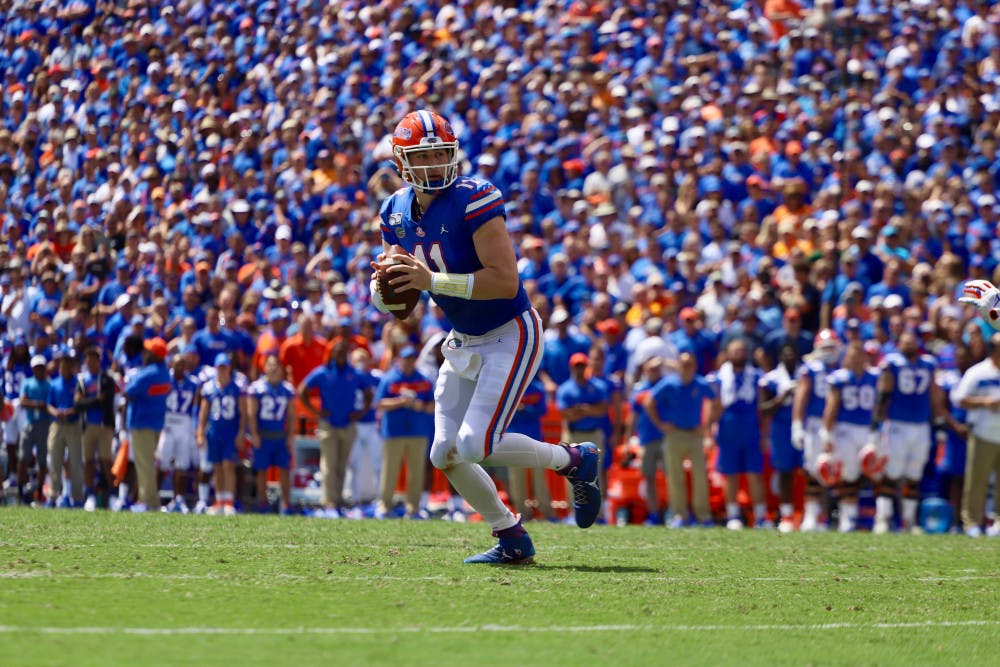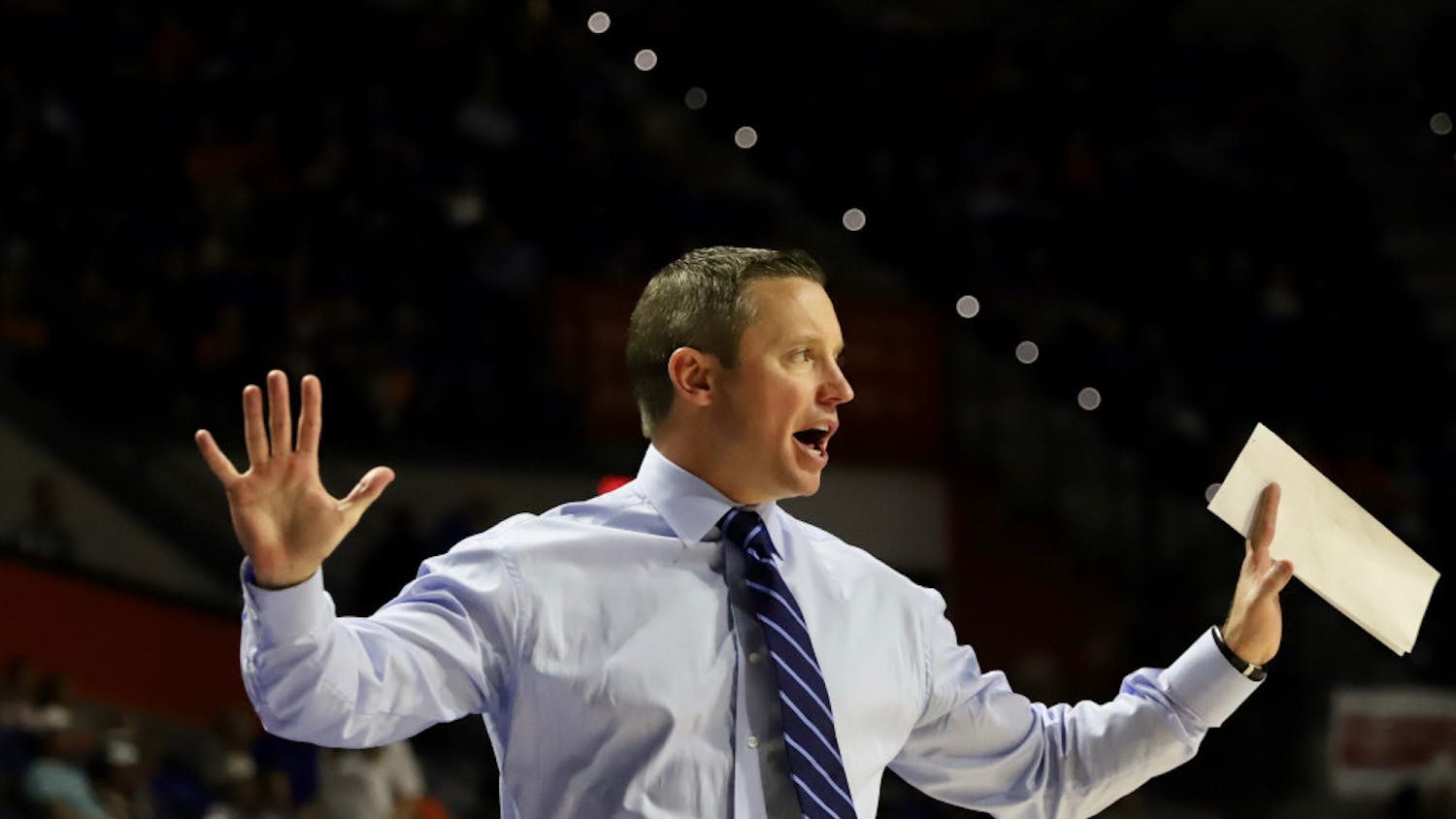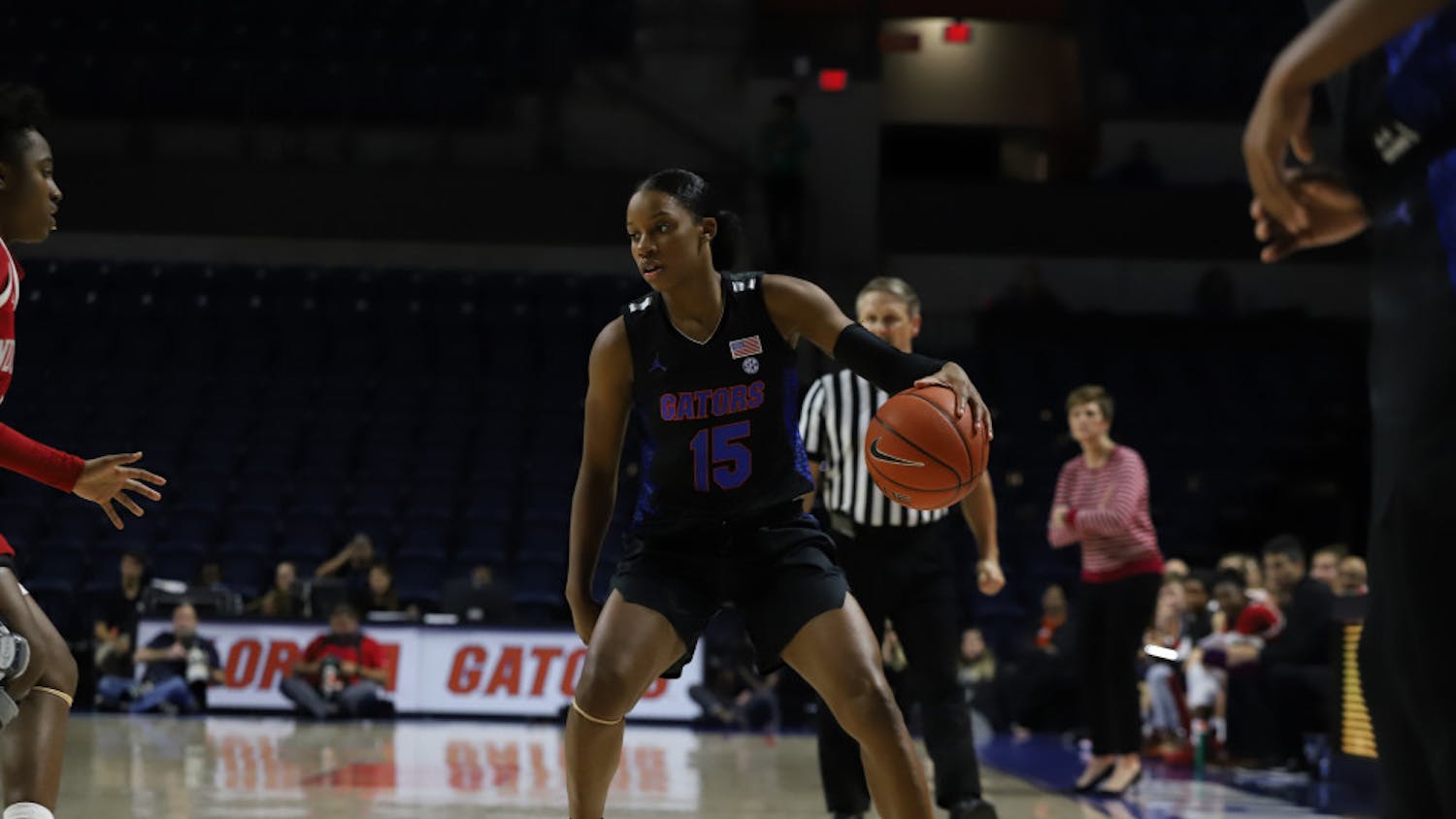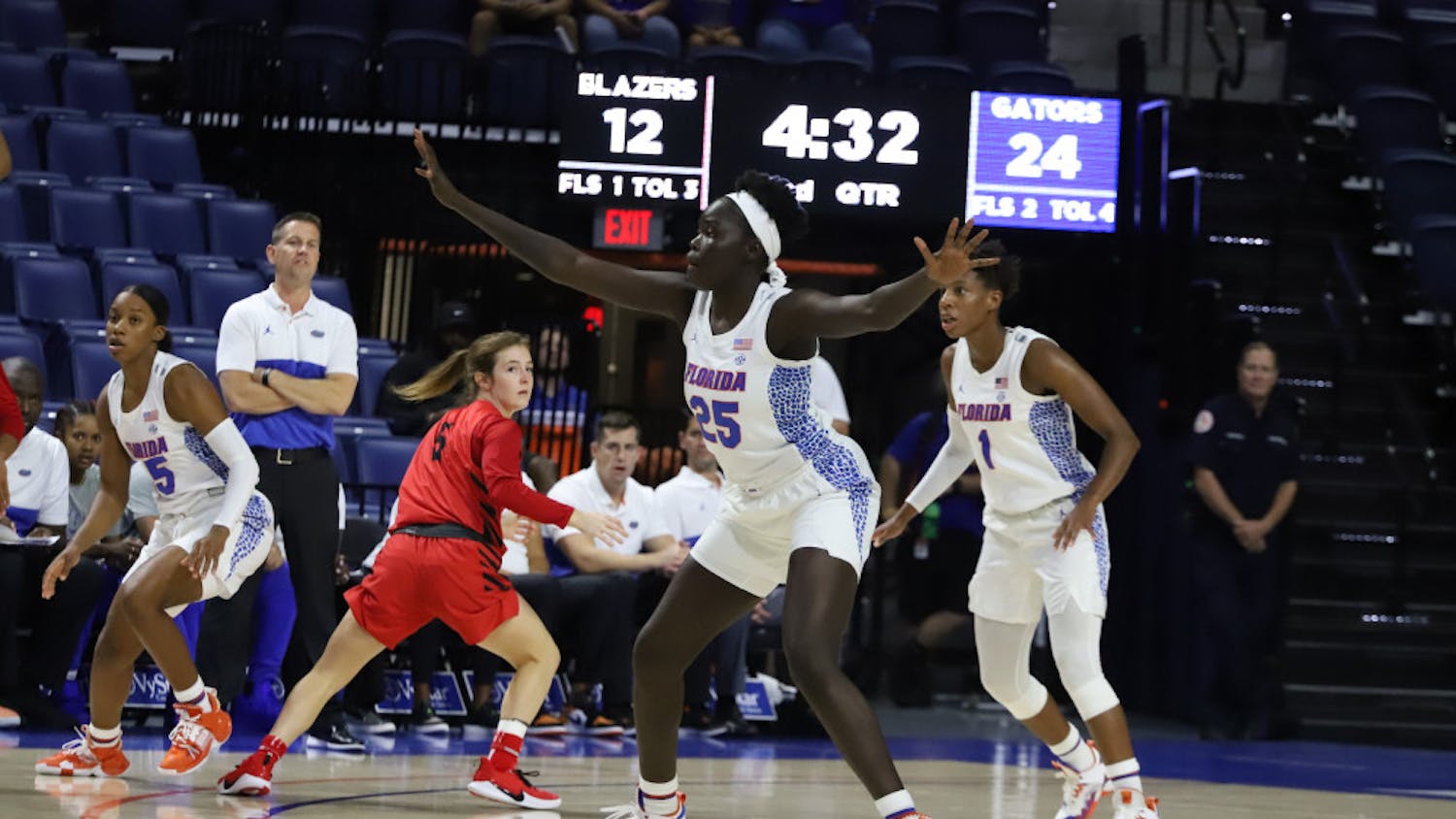“When the football team’s doing well, the entire town just kind of explodes,” Chandler Small, a Gainesville resident, said on The Ringer’s Cam Chronicles podcast in July.
Small is a fifth-generation Gator and manager of a memorabilia store in Gainesville. During his time in the college town, he came to realize just how much sports affect everyday life down here.
“If your high school or your college is doing well, in sports, then you’re likely to see the roads by your house fixed.” Small said on the podcast. “Everyone’s just a little bit more polite. They let people merge into lanes. The entire energy of Gainesville is based on sports.”
While these variables aren’t entirely quantifiable, Small did have a point: Gators sports is almost a religion in Gainesville.
But for the last five months, UF has participated in zero games, meets or matches due to the COVID-19 pandemic.
What does that do to the psyche of such a fervent fanbase? What kind of psychological toll have all of these cancellations, impending postponements and the uncertainty surrounding fall sports right now taken on the Gator Nation?
In 2014, Marci Cottingham, an assistant professor of sociology at the University of Amsterdam, published an essay on a case study of the Pittsburgh Steelers fanbase. In her essay, Cottingham explained how symbols like the Terrible Towel transcended the sports world and found additional significance in major life events like birthdays, weddings and funerals. Between this and the in-person closeness that attending games provides, fans are able to establish a cohesive identity linked to their favorite sports team.
COVID-19, of course, has derailed this aspect of sports spectator culture.
“To have physical co-presence really be disrupted right now, is kind of a problem,” Cottingham said. “I think there has been disruption to sports fandom as an identity.”
When it comes to college towns like Gainesville, Cottingham suggested that a change in community cohesion may be in the cards should this sports hiatus continue.
While there’s not exactly a treasure trove of scholarly research on how pandemics impact fans, Cottingham did say that the overarching nature of COVID-19 could bring these communities together in the long run.
“It’s disruptive and it’s bigger than the sport itself,” Cottingham said. “For example, I think it was in the early or late ‘90s when there was a baseball strike. I think that because that was players speaking, it really disrupted people’s ability to identify with and glorify the players. And that’s a big part of being a fan. To really look up to and lift up the people in the sport as the sport heroes.”
Unlike when MLB players went on strike in 1994, COVID-19 is not an ethics issue. It’s a global health issue, and its national effects are beyond athletes’ control. Therefore, Cottingham said, the pandemic is something sports fans are going through together, rather than another moral wedge inserted between players and spectators that makes idealization of the former nearly impossible.
“When players strike, it might disrupt fan identity,” Cottingham said. “But when we have the different measures in place with COVID-19, we can see that being this bigger issue that might solidify fan identity rather than disrupt it.”
And nothing strengthens bonds like shared trauma. However, when it comes to the short-term effects of not having sports, Cottingham feels that they’ll be more degenerative than possibly regenerative in the long run.
“I would definitely imagine that there’s going to be increased levels of stress, levels of anxiety,” she said. “Especially if someone has an identity rooted in fandom, and they’re not able to have those connections with loved ones or friends for bonding over sports. And, that’s definitely going to be a problem.”
But even now, with mask mandates becoming more prevalent nationwide and the continuous delay of live college sports, people are implementing this idea of identity through fandom and transcendent game day symbols.
All of this is not to say that a Gators football season won’t come to pass this fall. As of now, Florida’s season opener remains scheduled for Sept. 26 in Oxford, Mississippi, against Ole Miss. However, while UF has yet to announce any official stadium capacity figures for home games this year, Ole Miss told CBS Sports that it was capping attendance at 25 percent capacity, which equates to just over 16,000 people.
That may seem like a lot of people to have congregated in one place during a pandemic, but it’s nothing compared to the typical capacity of 64,000 in Vaught Hemingway Stadium.
Gators fans like Amy Lyn are holding out hope.
Lyn grew up in a Florida fan household and started at UF as a sophomore after spending her first year of college at the University of Alabama. Her husband also went to UF and her daughter will be attending virtually this fall.
“We’re just a big Florida fan family,” Lyn said.
From 2005 to 2010, the Lyns were boosters for the football team. She said they went to just about every game during that five-year window. This season, they decided to pick that back up.
“Now that my youngest daughter is going to be a freshman there, we just bought booster tickets again before all this happened,” Lyn said. “We’re hoping to be back in the stands and make friends with the boosters around us and enjoy it on the weekends.”
When asked about her daughter’s unique freshman year experience, Lyn expressed how distraught she was over sending her child off to Gainesville without any in-person classes and, possibly, no game-day fun for students.
“I think not having football definitely hurts. It takes away from the college experience,” Lyn said. “The atmosphere around sports at the University of Florida just defines the culture so much, And to miss out on that, it’s heartbreaking.”
Contact Payton Titus at ptitus@alligator.org and follow her on Twitter @petitus.25.
Quarterback Kyle Trask drops back in front of a packed crowd against Tennessee last season. This year, most SEC schools will cap their stadium capacities at about 20 to 25 percent.

Payton is a sophomore journalism major from Jacksonville, Florida. She is The Alligator's Spring 2021 digital managing editor. Her previous roles include softball beat writer, football beat writer and online sports editor.






